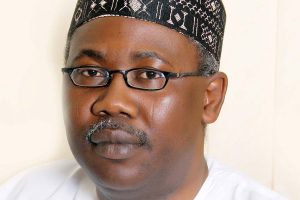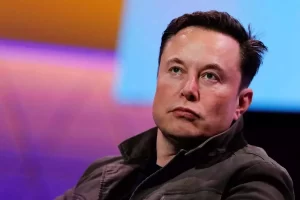Political parties constitute the foundation of democratic government. In every political system, the functions of political parties are: political recruitment of potential candidates into the party membership; interest articulation; interest aggregation; political socialisation. Political education involves the training of political leaders, and political communication.
The operations of political parties and politicians since the return to democracy do not manifest convincing prospects for party institutionalization, which is a critical criterion for democratic growth and consolidation. This unfortunate scenario, said to be one of the most crucial and yet least developed democratic institutions, is the political party system. There are currently many registered political parties in the country, most of which are an assemblage of people who share the same level of determination to use the party’s platform to get power. As such, it is difficult to identify programmes or ideologies. The structure of the political parties is such that internal democracy is virtually absent. The political parties are weak and unable to effectively carry out political education and discipline.
Party politics in Nigeria, particularly in the Fourth Republic, is faced with a plethora of bottlenecks which negate party institutionalisation. The way and manner political parties emerge in Nigeria, especially in the recent period, tend to negate their prospects for institutionalization, and ability to guarantee political stability and consolidate democracy. The activities of political parties that have been operating in the country since 1999 are diametrically opposed to those of the established democratic norms.
However, the way they have evolved has no correlation with what we are familiar with in the extant literature. The fluidity and unstable character of their composition portray them as mere vehicles of regime change from military governance to civilian rule, and obviously lack the capacity to resolve the persistent political issues tormenting the Nigerian state. An in depth examination of the way the Nigerian political parties have performed since the beginning of the Fourth Republic shows that they are incapable of addressing the various problems facing the country. Since 1999, political parties have been enmeshed in unhealthy competition with one another. Party factions are more in competition with themselves than with another party. The situation is so dismal to the extent that the three major parties that operated between 1999 and 2003 manifested ethnic inclination and regionalist tendencies, which was exhibited in the patterns of electoral prospects. These tendencies make party institutionalisation a herculean task.
Furthermore, Nigerian political parties have failed to maintain a harmonious relationship at the intraparty and inter party levels. Intraparty squabbles have always threatened the parties to extinction or caused schism of disturbing magnitude. This situation compelled many of the party stalwarts to defect or remain ambivalent. Such founding members in the Peoples Democratic Party included the Late Sunday Awoniyi, Solomon Lar, Alex Ekwueme, among others. The situation was not better in other parties like the Alliance for Democracy. The above level of internal party democracy and party institutionalisation has far-reaching implications for democratic consolidation. The problems besetting the country’s political parties are so gross to the extent that if they are not remedied, they will not be better positioned to make meaningful contributions to democratic stability and consolidation.
Moreover, the implicit pitfalls of the political parties to play politics according to the rules in their internal affairs as well as the larger political entity, have led to the politically motivated killings across political divides. The consequences of such conflicts have been the perennial collapse of the political order, resulting in pervasive instability all over the country and the monumental loss of lives and property. Invariably, the focus of the government and its hard-earned resources has been wasted on conflict management instead of development agenda.
Additionally, one major problem confronting Nigeria’s democracy is ideological deficit. Ideology should be the basis for the operation of a party; it should be an instrument for mobilisation, conflict management, and identification, and guide the actions and judgement of individuals. Even though Nigerian political parties have programmes from where their ideological disposition could be deduced, there is no clear-cut distinction between the party programmes of the various political parties and by implication, makes it difficult to pinpoint their ideological differences.
The above situation is the reality with the Fourth Republic political parties, unlike the parties of the First and Second republics that were known with a measure of identifiable ideologies. In the same vein, the pattern and nature of political competition have little or no regard for ideological consideration due to the attitude of the elite and the state. Rather, primordial cleavages becloud the entire process. That is the reason the manifesto of the party that captures power is often relegated to the background, and governance is at the capricious whims of those in positions of authority. The situation has led to political vagrancy, which implies a situation by which politicians defect from one party to another. These portend negative consequences for party institutionalisation.
Also, the gross exhibition of indiscipline by Nigerian parties is another causative factor that negates party institutionalisation. This is evident in the high degree of internal party skirmishes, and stalemate in the parties. The PDP and the All Progressives Congress have experienced these tremendously in the Fourth Republic. This has almost torn the parties into shreds even when the issues involved are such that could have been resolved amicably as members of the same political family. The impeachment saga of August 2002 and the feud generated by the tenure elongation stalemate, which led to the defection of the former Vice President Atiku Abubakar, are examples of intraparty imbroglio of disturbing frequencies.
Hence, party institutionalisation is an essential condition for democratic consolidation in the country. The character of party politics makes the prospects of party institutionalisation remote. To address this situation, it is pertinent to start with the examination of the character of the Nigerian state. This entails an interrogation of the reasons power acquisition remains central to the conflicts between different groups in the country at all levels. One tenable explanation for this is that power and resources are concentrated in the hands of the Federal Government. There is need for the decentralisation and devolution of power at the federal and state units as far as their control over resource allocation is concerned. This can reduce the cutthroat competition for power among the political elite at all strata of governance.
Political parties in the country should strive to meet the dictates for party institutionalization, which are organisational vitality, organisational interdependence, stable factions and integrative community life. They must ensure that there should be a high degree of stability and regularity of party competitions which are relatively lacking. The parties must strive to maintain effective roots in the society to reinforce and stabilise the institutionalised system, establish and sustain effective party organisations instead of their current practices of operating as electoral instruments for the actualisation of the interests of personal leaders. This would ultimately enhance their legitimacy among the entire citizenry.
Oladeji writes from Lagos via [email protected]























Add Comment